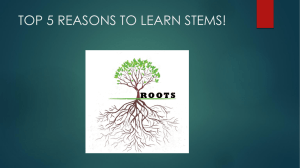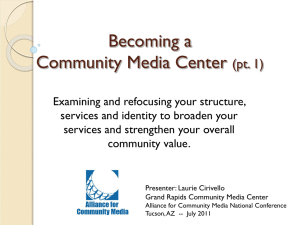Leadership Development – Session 1
advertisement
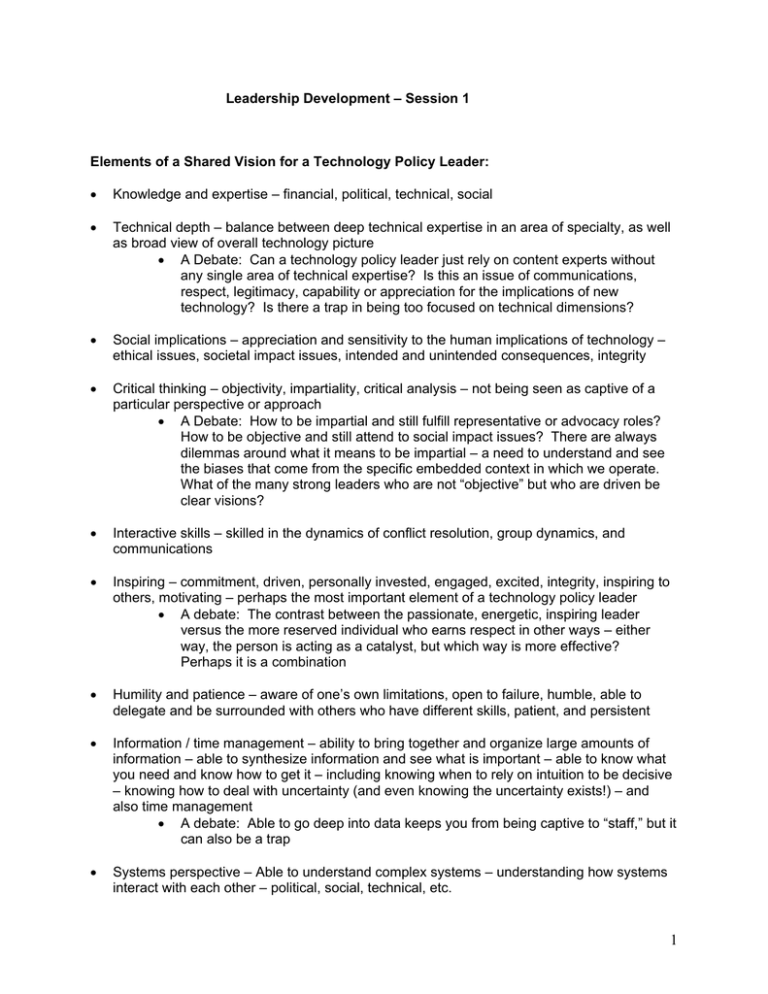
Leadership Development – Session 1 Elements of a Shared Vision for a Technology Policy Leader: • Knowledge and expertise – financial, political, technical, social • Technical depth – balance between deep technical expertise in an area of specialty, as well as broad view of overall technology picture • A Debate: Can a technology policy leader just rely on content experts without any single area of technical expertise? Is this an issue of communications, respect, legitimacy, capability or appreciation for the implications of new technology? Is there a trap in being too focused on technical dimensions? • Social implications – appreciation and sensitivity to the human implications of technology – ethical issues, societal impact issues, intended and unintended consequences, integrity • Critical thinking – objectivity, impartiality, critical analysis – not being seen as captive of a particular perspective or approach • A Debate: How to be impartial and still fulfill representative or advocacy roles? How to be objective and still attend to social impact issues? There are always dilemmas around what it means to be impartial – a need to understand and see the biases that come from the specific embedded context in which we operate. What of the many strong leaders who are not “objective” but who are driven be clear visions? • Interactive skills – skilled in the dynamics of conflict resolution, group dynamics, and communications • Inspiring – commitment, driven, personally invested, engaged, excited, integrity, inspiring to others, motivating – perhaps the most important element of a technology policy leader • A debate: The contrast between the passionate, energetic, inspiring leader versus the more reserved individual who earns respect in other ways – either way, the person is acting as a catalyst, but which way is more effective? Perhaps it is a combination • Humility and patience – aware of one’s own limitations, open to failure, humble, able to delegate and be surrounded with others who have different skills, patient, and persistent • Information / time management – ability to bring together and organize large amounts of information – able to synthesize information and see what is important – able to know what you need and know how to get it – including knowing when to rely on intuition to be decisive – knowing how to deal with uncertainty (and even knowing the uncertainty exists!) – and also time management • A debate: Able to go deep into data keeps you from being captive to “staff,” but it can also be a trap • Systems perspective – Able to understand complex systems – understanding how systems interact with each other – political, social, technical, etc. 1 • Personal / Professional Balance – balancing personal and professional lives Analysis of Potential Disconnects Associated with the Vision for a Technology Policy Leader: • Concern with increasingly complex and specialized systems • Knowing the type of leader that we should aspire to become over the next ten years – knowing where you are at and where you should be headed – constant uncertainty and predictable disconnects • Inability to see and address your own weaknesses – hard to “become humble” • Dealing effectively with uncertainly – especially the contrast between and academic setting and “real world realities” • Concern around limited opportunities at act on the shared vision – with leaders in organizations that we go to share this vision • During the time in the program – the social science requirements limit deeper technical expertise and vice versa – all of which is in tension with time in assistantships – time is a scarce resource • Time constraints in acquiring needed breadth of knowledge on the job – across technical, social, financial and other domains – an issue for links across stakeholder groups and other dimensions of leadership • Inability to balance personal and professional lives • Issues around discrimination, lack of respect, being seen as too young or as an outsider or as new or as too focused on new tools and techniques • Unable to be flexible in different situations – able to adapt to new circumstances • Unable to step back from current tasks, assignments, and projects • Difficulties in implementation, execution, technical expertise 2
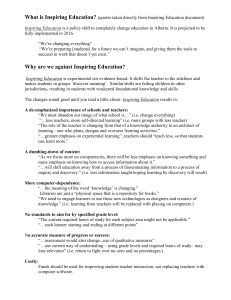

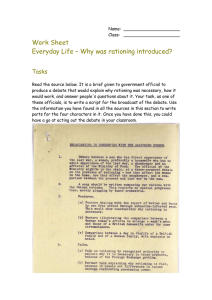
![Transformational Change [Powerpoint Presentation]](http://s2.studylib.net/store/data/005447411_1-da0a83bd34bdb90183940ab700125003-300x300.png)
